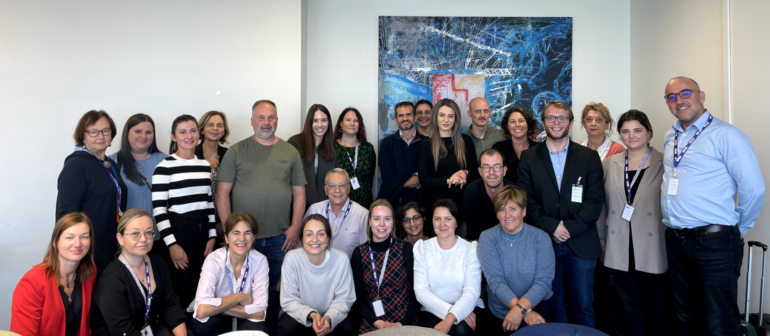Extensive partner coalition promotes social innovation through education at the European level

The European Social Innovation Campus (ESIC) project responds to the current challenges of working life by providing additional training and new skills concerning social economy to employees and students. The project is part of the European Commission’s ‘Pact for Skills’ flagship action, whose common goal is to provide additional training to 5% of Europe’s workforce and entrepreneurs each year.
“It is tremendously inspiring to create something new together with the amazing professionals involved,” says Project Manager Niina Karvinen from Diaconia University of Applied Sciences.
One of the key objectives of the European Union has been to increase and strengthen the skills of the working-age population. The EU estimates that upcoming changes, such as digitalisation and the green transition, will require new skills from workers, which is why a large part of the European workforce will need further training or re-education in the next few years.
ESIC provides especially training and knowledge on social innovations, which have also been identified at the European level as an essential means of solving social problems.
Over four years, the project will create a cross-cutting curriculum ranging from vocational to doctoral education. The training is aimed at teachers and anyone interested in these themes.
An extensive cooperation network aims to disseminate knowledge and know-how
The ESIC consortium brings together higher education institutions, vocational education and training, social economy organisations, companies from several European countries, and actors at the European level. The project’s strong and multilingual communication and dissemination network promotes awareness of the social economy sector as a career choice and supports the development of a proactive and entrepreneurial mindset across the EU.
“We are also one of the Blueprint alliances in the Pact of Skills programme, so we get to network extensively in the social economy sector and learn from each other across Europe,” Karvinen says.
The project’s next stage will be the opening of the European Social Innovation Campus platform. The educational content generated by the project will be shared on the platform, as well as research information on social enterprises and social innovations. The website will also include a dynamic Skills Monitor, which will distribute research data to researchers and anyone interested in the subject in an open data format.
The project kick-off meeting was held in Helsinki and Tallinn in September. Four years of cooperation to increase awareness of the social economy and social innovations has started rapidly with mapping existing research data. ESIC relies heavily on research, and gathering information and research is one of the project’s focus areas.
The European Social Innovation Campus (ESIC) project is implemented by Diaconia University of Applied Sciences and its co-implementors are the University of Tallinn, the University of Sørøst-Norge, Odisee University of Applied Sciences, Live Foundation, Euricse, Rethink Ireland, Euclid Network, Ukrainian Social Academy, Federazione Trentina della Cooperazione, Federación de Cooperativas y de la Economía Social de Madrid, Asociación empresarial de Sociedades Laborales, Fundatia Alaturi de voi Romania, Asociatia Institutul pentru Parteneriat Social Bucovina and Provincia autonoma di Trento. The project runs 1.9.2023–30.8.2027 and is funded by the European Commission’s Erasmus+ programme.
